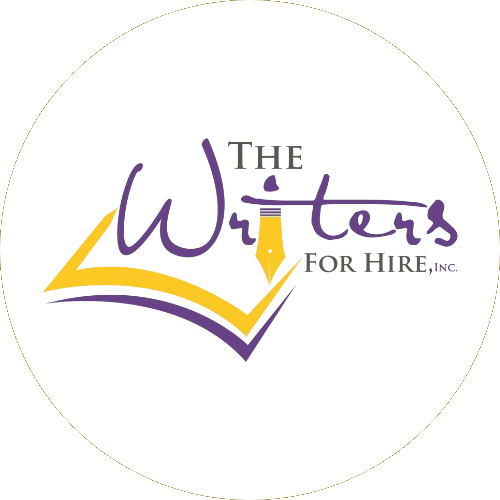Six Ways a Historian Can Help You Write a Nonfiction Book
September 7, 2021
“Writing a nonfiction book should primarily be about establishing credibility and authority in a specific domain.” — Hassan Osman
Nowadays, it seems that anyone who is anyone must write a book to establish themselves in their given field. However, many well-meaning folks erroneously underestimate just how much work goes into writing a quality nonfiction book.
A nonfiction book, unlike creative writing, is about accuracy. Readers expect nonfiction materials to hit the mark every time. If the book fails to deliver, it can quickly lead to writers becoming discredited.
In contrast, a well-written nonfiction book can catapult an individual to the heights of their respective domain.
But what makes the difference between a nonfiction book that hits the mark, or one that quickly falls flat? It seems that the answer lies in how much research is put into the book, and how well that research is done.
In this article, we will explore how hiring a historian can contribute to a well-researched and cogent nonfiction book.
Six Ways a Historian Can Help Write a Nonfiction Book
1. Conducting Research and Finding Sources
Nonfiction works are only as good as the research backing them up. Without solid research, critics can easily dismiss a nonfiction work.
That being said, research does not constitute cramming facts and figures onto a page. Appropriate research entails knowing where to look and how to look.
That’s where a historian can provide valuable contributions.

Historians need to be well-versed in their respective areas. Hence, they are familiar with books, photographs, first-hand accounts, and even know people related to the book’s subject.
This expertise can shed light on the topic, especially when the writer is not an expert.
Additionally, a historian can help reduce overall research time. Historians familiar with sources can quickly point a writer in the precise direction.
Knowing where to look helps narrow the writer’s focus. This approach allows the writer to devote more time to writing than to research.
Historians can also help writers differentiate the quality of sources. While a writer may not be able to discern which sources cast greater confidence in readers, a historian can certainly provide insight into the veracity and reliability of the sources in question. Ultimately, this approach boosts the work’s overall credibility.
Successful nonfiction writers know they must build books around trustworthy foundations. A strong foundation not only builds confidence in readers but also helps keep criticism at bay.
Critics are prone to nitpick minutiae. So naturally, employing credible first-hand and second-hand sources can boost the claims in the book.
Everything from photographs to diaries or interviews can all show that the content is truly authentic. Additionally, utilizing second-hand sources such as reviews, analyses, and opinions can also help create an image of authority.
However, it all depends on the sources cited. Fringe or unknown sources will do little to boost confidence.
Renowned CNN journalist Wolf Blitzer once said, “If you are a reliable, honest journalist, sources will open up and trust you and share good information.” At face value, this statement refers specifically to journalism. On a deeper level, reliable sources and information will always gravitate toward an honest writer.
As a result, employing a historian can help honest writers separate the wheat from the chaff. Ultimately, the veracity of quality information will shine through, thereby boosting a book’s argument.
2. Asking Questions
All writers, especially journalists, go about writing their pieces with fundamental questions they seek to answer. These questions typically begin with the who, what, where, when, why treatment. After all, these questions serve to guide writers in the right direction.
Historians, however, view these same questions from a different perspective. Many times, writers view “who” as the main characters in a story. In contrast, historians may view “who” as a social construct of people or even nations.
This variation in thought allows writers to pursue their inquiries from an entirely different angle. Moreover, shifting angles enables writers to place a new twist on their narrative.
Often, considering events from divergent positions adds richness to what could already be a familiar subject.

The following descriptions show how perspectives may vary according to divergent points of view.
- Who – Traditionally, this perspective refers to the main character(s) in the narrative. From a historical point of view, it may be broader, thus encompassing social groups, nations, or ethnic groups. Consequently, a historical viewpoint enables writers to contextualize individuals within a larger social construct.
- What – A traditional approach would focus on the events occurring within the characters’ immediate timeline. Historically, the characters’ lives would fall within the historical context in which they lived. This approach helps readers better comprehend why characters acted the way they did.
- When – A typical narrative constructs timelines, usually in chronological order. Implementing a historical view enables writers to place characters within their corresponding era. As such, the concept of time expands to include a much more wide-ranging timeframe.
- Where – Often, writers reduce location to the characters’ immediate surroundings. This approach saves unnecessary details regarding meaningless information. Nevertheless, a historical perspective allows writers to place characters within a larger geographical or spatial scope. Doing so is useful so long as it helps the reader better comprehend the influence location has on the individual characters.
- Why – Narratives generally describe the characters’ motivation for the actions they do. A historical approach allows writers to go deeper into the social and even political motivations that explain characters’ actions and behaviors.
- How – When writers look at how characters go about their actions, they do so from a practical perspective. Conversely, historians look at how things occur based on the influence of other events around the characters. Consequently, this analysis allows readers to look at how other events can influence specific events.
3. Employing Conceptual Frameworks
Writers, generally novelists, tend to piece together their stories based on a compelling storyline. They aim to take the reader through a logical sequence of events that explains the story’s plausibility. This approach is not only reasonable but also practical.

However, historians typically look at events through the lens of a conceptual framework. Conceptual frameworks allow historians to dissect events based on a set of principles.
The aim of implementing a conceptual framework is to eliminate personal bias from the overall analysis.
Consequently, writers can benefit from removing personal bias. In doing so, they are free to explore ideas without influencing readers with their opinions.
While manifesting one’s opinions is not inherently negative, writers should strive to leave readers to their own conclusions.
Historians can help writers place events and depictions within the context of a conceptual framework. As a writer and spiritual teacher, Frederick Lenz once remarked, “There is no ultimate objective reality within the ten thousand states of mind. Most people don’t like to hear his. But here are ten thousand realities, and each is definitely unifying.”
This profound quote encapsulates the need for a conceptual framework.
Great writers never force their agenda on their readers. Great writers lay out facts for readers to judge. Ultimately, it is the reader who determines what to make of the material.
As such, conceptual frameworks can help place historical events within an appropriate time and context.
There is one word of caution: writers should become familiar with the inner workings of whatever conceptual framework they implement. Otherwise, information may become skewed. Therefore, the use of a conceptual framework should aid in comprehending events.
Please bear in mind that the “ten thousand realities” surrounding a single historical event require writers to present information as clearly and plainly as possible. Doing so enables readers to grasp the depth contained within a writer’s narrative fully.
4. Understanding Collective Behavior
Some writers make an effort to render their characters unique. Nevertheless, they fail to recognize that their characters are also part of a wider collective mindset.
It is essential to highlight a character’s uniqueness within the subtext of the collective mindset.

The renowned American physician Lewis Thomas once stated, “It is in our collective behavior that we are most mysterious.”
This statement may seem contradictory on the surface. However, readers may not fully grasp a character’s true singularity unless the historical and social backdrop can highlight these differences.
The Hollywood film “Schindler’s List” effectively underscores this point. Based on the true story of events that went on during World War II, the main character, Oskar Schindler, is a kind and compassionate man. While this point is evident, the film’s historical context accentuates the truly unique nature of his actions throughout the film.
Nonetheless, amplifying Schindler’s actions would not have been possible without the appropriate historical context. Specifically, Schindler’s actions were in direct opposition to the prevailing collective behavior. Therefore, the storyline must delve into Schindler’s motivations. This approach creates a good-versus-evil narrative that turned “Schindler’s List” into one of Hollywood’s most renowned movies.
Undoubtedly, employing the help of a historian can facilitate the dissection of collection behavior. Particularly, historians can aid in framing collective behavior accurately.
Therefore, individual characters’ distinctive features can manifest themselves across the narrative. As a result, writers can insert characters, whether fictional or real, into their true context. This approach allows readers to see how the characters are real people and not merely the figment of a creative writer’s imagination.
5. Defining Terms and Establishing Origins
Writers often come across expressions, words, and terminology they may not completely understand. It should not surprise that the origins of words and phrases are unknown to most people.
While the terms or expressions may be clear to the writer, the vocabulary may not be apparent to the reader. Therefore, the writer must strive to clarify it.
Nevertheless, the writer may not be able to explain what each term means or represents adequately. Therefore, historians can help establish the true nature and origin of language. Understanding the nature of language is important when writing in a specific historical context.
A great example of this concept is Frank McCourt’s well-loved memoir, “Angela’s Ashes.” This memoir takes place in the 1930s. Given its historical nature, readers may not be quite familiar with the book’s language. Thus, some readers might miss some of the story’s finer details. Nevertheless, the novel is accurate in reflecting what people would have sounded like back in the ‘30s.

For a modern writer looking to write a memoir or biography set in the 1930s, they would need to have a clear understanding of how people spoke at that time.
That would necessitate explaining the terms without giving the reader a vocabulary lesson.
Ultimately, a historian can help fill in the gaps needed to contextualize language as characters would speak it clearly. In the end, this practice enables writers to convey true authenticity.
6. Avoiding Needless Details and Information
Inserting unrelated historical events into the main storyline is a common mistake. Of course, some events help pique readers’ curiosity. However, references to unrelated events may distract attention from the main storyline.
Historians are adept at sticking to the point. After all, there are a plethora of details surrounding a single event. As a result, it can be quite easy to get lost in a sea of information. When that occurs, it might be nearly impossible to get to the point. Therefore, historians need to get to the point.
While the saying “the devil is in the details” rings true, the fact is that writers must avoid sidetracking their story. Taking readers through a maze of seemingly interesting footnotes may lead the narrative astray. In that case, readers may end up confused and struggling to find the point.
A great rule of thumb is always to question the relevance of an account. If the account does not contribute to the main storyline, it should not become part of the narrative.
For instance, including personal anecdotes may seem like an entertaining approach to an autobiography. However, anecdotes may become pointless if they only needlessly drag the story on.
Telling a great story is about setting the stage as it brings the story full circle.
Historians know that they must make a point, build their case around it, and find evidence to support their claims. Otherwise, their peers may dismiss their work.
To avoid that outcome, historians need to discriminate events based on the narrative they want to push.

Great writers know that stuffing their material will only lead readers to lose interest. Historians can help discern which details should make it into the manuscript and which ones would best remain sitting on the sidelines.
Conclusion
Writers from all walks of life can benefit from the wisdom and expertise that a historian can bring to the table.
Historians view the world from a particular point of view and employ conceptual frameworks to analyze and judge life events. This viewpoint allows them to remove personal bias from their representation of the facts.
Additionally, historians can help writers fill in the gaps. Writers must get the details right. After all, accuracy matters significantly when looking to build reputation and credibility. Plus, historians can help writers establish credible sources. Readers can trust the claims in the material, as trustworthy sources provide confidence.
Lastly, historians are adept at keeping their eyes on the main point. Given the abundance of details and information, writers can easily miss the point by including needless anecdotes. Consequently, historians can help writers sift through the myriad of information and select the tidbits that truly matter.
Ultimately, writers will be better off employing hiring a historian. It will not only save time on research, but it will also help focus their efforts on what truly matters: writing.































